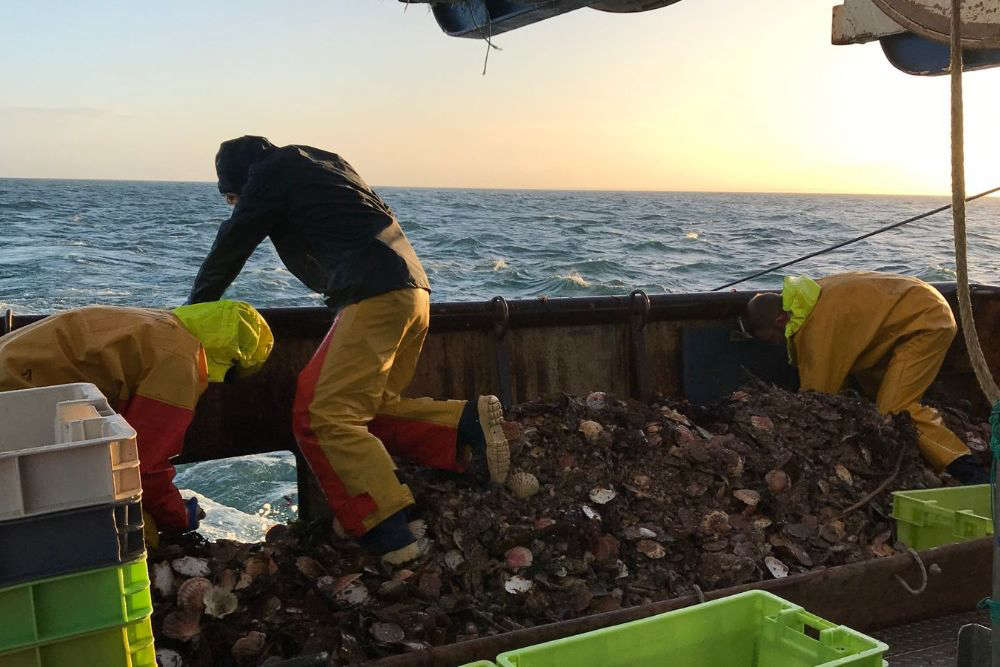
64 permanent and 31 temporary fishing licences are being issued to French vessels, letting them continue using local waters.
47 permanent licences were already issued earlier this year, bringing the total to 111.
75 boats were denied permits though, with Ministers saying they weren't able to provide proof they previously fished in Jersey's territorial waters.
They have to stop fishing here by Saturday 30 October, 30 days after the new 'Trade and Cooperation Agreement' comes into effect.
Vessels with temporary permits will be allowed to fish off Jersey's coast until the end of January 2022, giving them time to provide the extra information needed for a permanent licence.
A post-Brexit transition period was previously extended until the end of September to allow more time for the future arrangements to be ironed out.
It's after French fishing vessels blockaded St Helier's harbour in May, protesting against Jersey's new requirements.
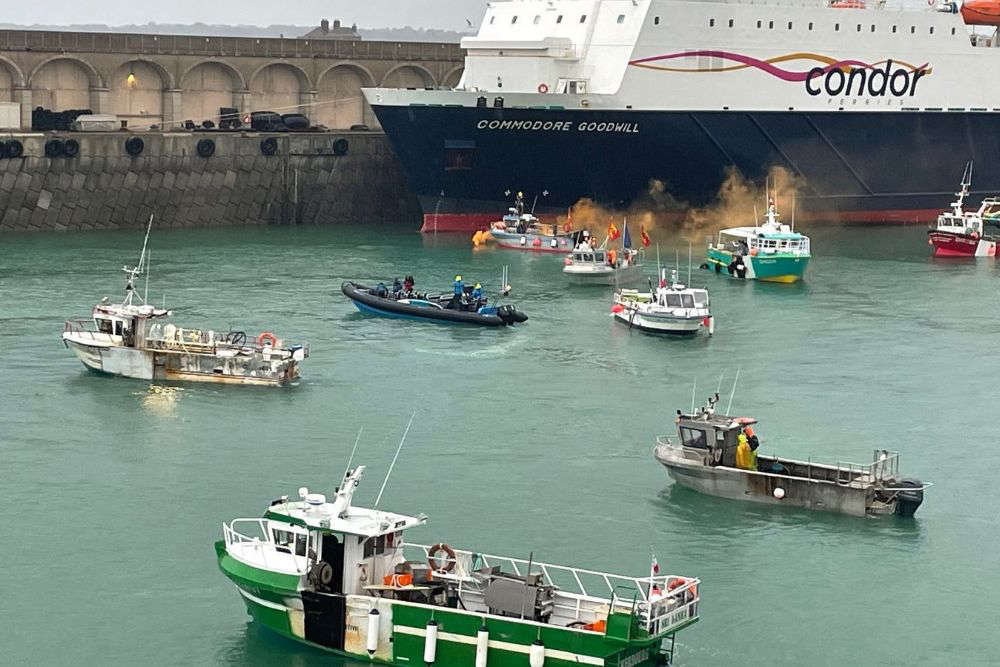 Image Credit: Josh Le Corré
Image Credit: Josh Le Corré
External Relations Minister, Senator Ian Gorst, says the transition arrangement is no longer needed:
"Jersey has maintained a pragmatic, reasonable and evidence-based approach throughout, extending the transitional period on a number of occasions until now, despite not being required by the TCA to do so.
"We’re now in a position to ensure those boats which have fished these waters are able to continue doing so, and therefore it is time, next month, for our transitional arrangements to come to a close."
 Senators John Le Fondré, Lyndon Farnham and Ian Gorst on a call to UK Prime Minister Boris Johnson during the May dispute.
Senators John Le Fondré, Lyndon Farnham and Ian Gorst on a call to UK Prime Minister Boris Johnson during the May dispute.
Environment Minister, Deputy John Young, says now more fishing vessels have provided the required information, the government is able to start issuing the permits:
"By issuing these licences in the days ahead, we are ensuring the fishing effort in our waters is similar to pre-Brexit – those boats with an economic dependence on Jersey waters, who’ve fished here regularly before and have demonstrated it, will receive licences.
"We’ve been flexible in the kinds of positional evidence we’ve accepted, using VMS information, commercially available Automatic Identification System data, logbooks, chart plotters and other written information."
Senator Gorst added that there are some issues that still need ironing out:
We will continue to have an open door to further data and evidence of fishing activity, including for vessels which have already been considered, and we look forward to working collaboratively to resolve the remaining complex issues."
Deputy Young explained what they are:
"The issue of ‘replacement vessels’ is still to be resolved, and we’re aware they are important to the industry as boats are regularly commissioned and decommissioned.
"There are a small number of these applicant's vessels which require further consideration, and they will be allowed to continue operating in our waters for now while we continue discussions about how ‘replacement vessels’ should be managed."


 The first 'Jersey Contemporary Musician' will be crowned this weekend
The first 'Jersey Contemporary Musician' will be crowned this weekend
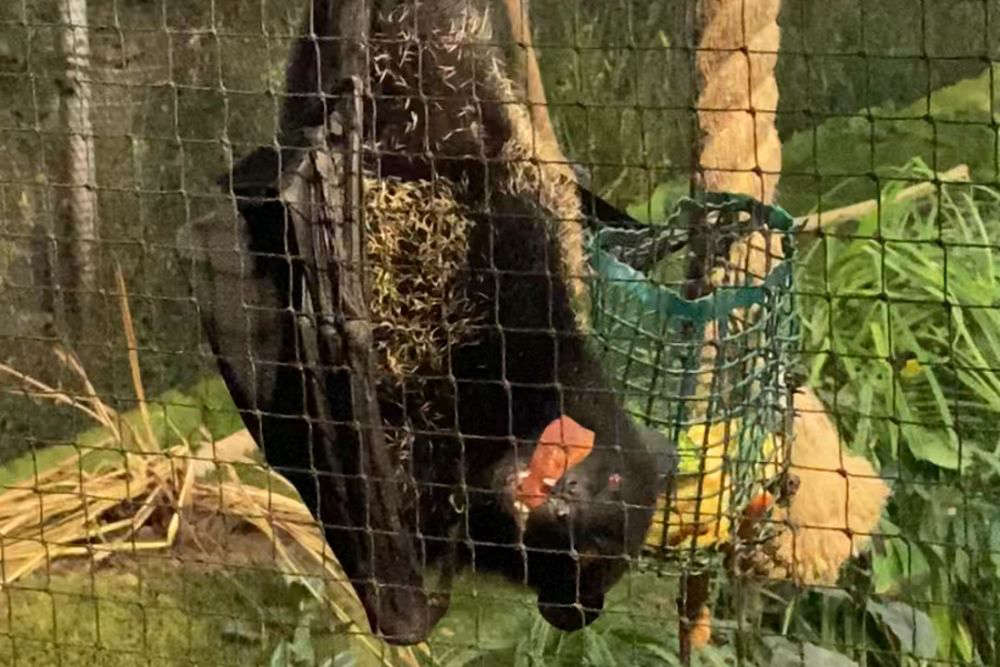 Ten rare bats at Jersey Zoo die from infection
Ten rare bats at Jersey Zoo die from infection
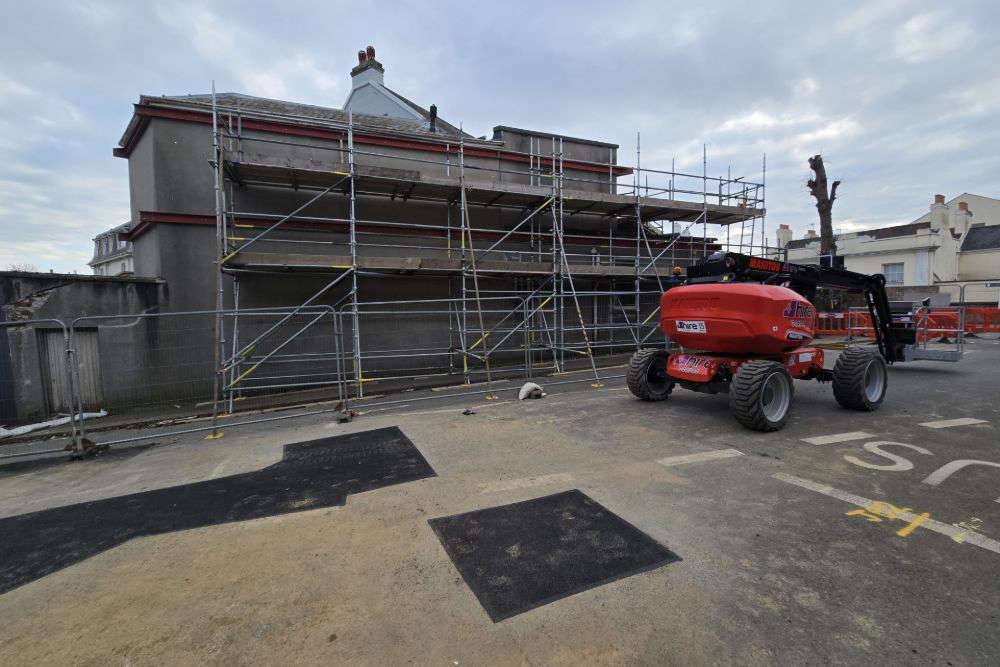 Still no date for Rouge Bouillon reopening
Still no date for Rouge Bouillon reopening
 New-look Youth Assembly hopes to attract more teens
New-look Youth Assembly hopes to attract more teens
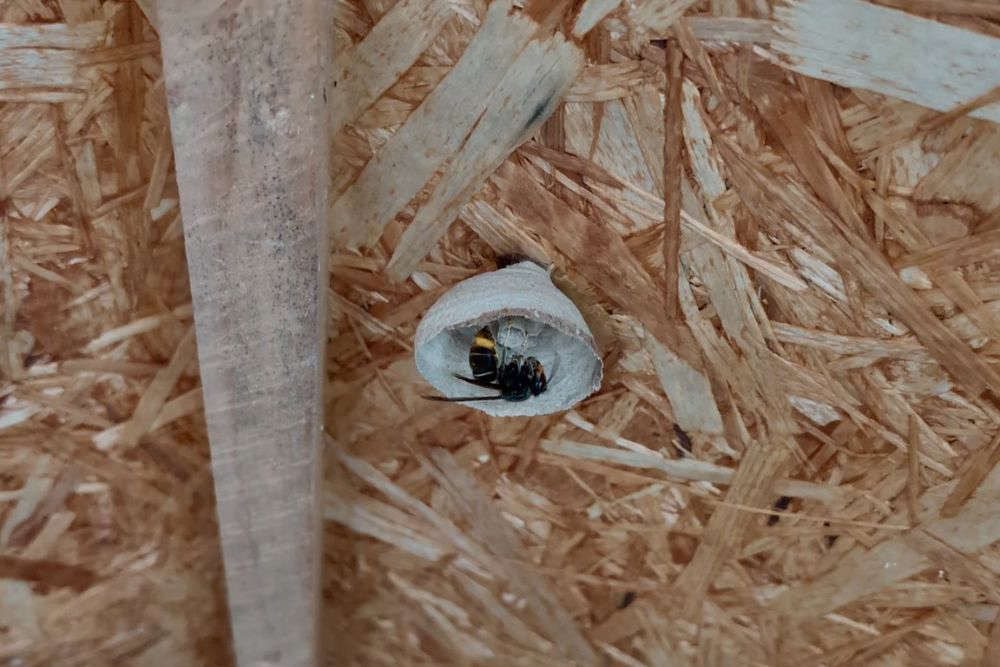 Record year for Asian hornets in Jersey already
Record year for Asian hornets in Jersey already
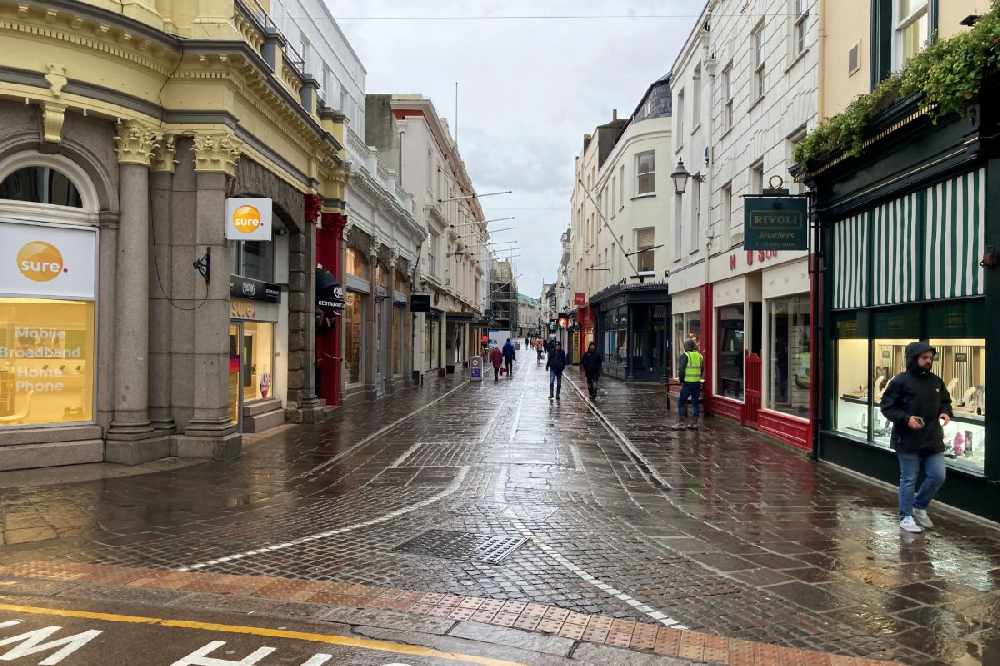 Man accused of assaulting young girl twice on St Helier's high street
Man accused of assaulting young girl twice on St Helier's high street
 Tenant experiences needed to inform changes to renting laws
Tenant experiences needed to inform changes to renting laws
 Organ donors to be recognised with public memorial
Organ donors to be recognised with public memorial



